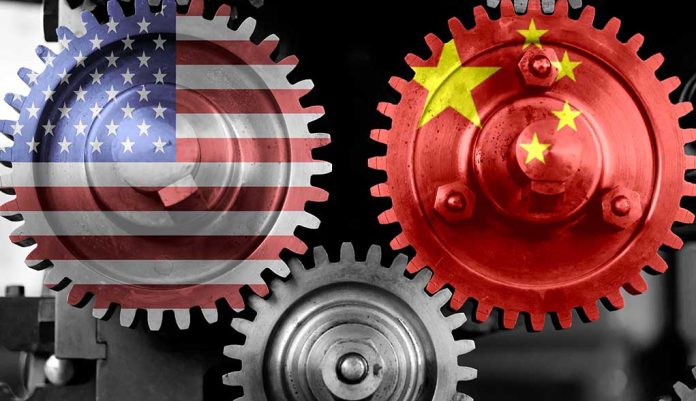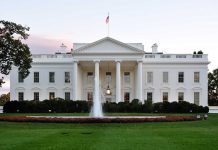
A recent U.S. defense delegation in Beijing explored critical security concerns with Chinese military officials.
At a Glance
- A Defense Department delegation concluded military talks with Chinese counterparts.
- Michael S. Chase led the U.S. delegation for the 18th Defense Policy Coordination Talks in Beijing.
- Discussions included regional and global security issues, U.S. concerns over China’s support for Russia, and its impact on European and transatlantic security.
- The U.S. reaffirmed its commitment to defending Indo-Pacific allies and emphasized freedom of navigation in the South China Sea.
- The U.S. highlighted the importance of peace and stability across the Taiwan Strait and raised concerns about North Korea and Middle East stability.
U.S. and China: Maintaining Military Communication
A Defense Department delegation recently concluded critical security talks with Chinese officials in Beijing. The meetings aimed to ensure open communication channels in competitive global relationships. Headed by Michael S. Chase, the discussions marked the 18th Defense Policy Coordination Talks, and addressed various global and regional security issues, including China’s support for Russia and concerns about North Korea and Middle Eastern stability.
The dialogue touched on the principle of freedom of navigation in the South China Sea, a point the U.S. emphasized is crucial under international law. A senior official stated, “DOD also reaffirmed the U.S. commitment to defending its Indo-Pacific allies, and the department emphasized the importance of respect for freedom of navigation as guaranteed under international law in light of ongoing aggressive PRC [People’s Republic of China] harassment against lawfully operating Philippine vessels in the South China Sea.”
Efforts to Decrease Tensions
Despite these efforts, U.S. officials remain vigilant regarding China’s strategic objectives and actions globally. Secretary of Defense Lloyd J. Austin III and other officials have underlined the importance of maintaining military-to-military communication to avert potential conflicts. Strategic communication is pivotal to ensuring regional stability and fostering peace, particularly in sensitive areas like the Taiwan Strait and South China Sea.
“The department continues to view [China] as our pacing challenge as described in the National Defense Strategy,” the senior official said. “[China] continues to be the only U.S. competitor with the intent and, increasingly, the capability to overturn the rules-based infrastructure that has kept peace in the Indo-Pacific since the end of the Second World War.”
The U.S. and Chinese military officials resumed discussions focusing on operational safety, a crucial aspect in preventing miscommunications and accidental conflicts. Talks were restarted in Honolulu as part of the Military Maritime Consultative Agreement Working Group for the first time since December 2021, with representatives from the U.S. Indo-Pacific Command, U.S. Pacific Fleet, and U.S. Pacific Air Forces participating.
Addressing Global Security Concerns
Part of these discussions also included reviewing specific safety-related events in the region, particularly aiming for safer air and naval interactions. President Biden and President Xi Jinping had set a directive last November to ensure continuous communication, which these recent talks underscore. The U.S. documented over 180 coercive and risky air intercepts by China between 2021 and 2023, although a decline in unsafe behavior was noted.
“We’ve observed a reduction in unsafe behavior between us and PLA aircraft and vessels over the last several months,” a senior military official said. “So, we’re encouraged by that, and we’re happy that we have this opportunity with the MMCA to talk about ways to make sure that trend continues in the right direction.”
Despite efforts to improve communication, the U.S. highlighted continued concerns over China’s actions globally, particularly against non-U.S. maritime operations in the South China Sea and towards nations like the Philippines. These security discussions are crucial steps towards managing differences and navigating the complexities of the U.S.-China competitive relationship, maintaining peace, and avoiding misunderstandings that could escalate into conflicts.
Sources:
- https://www.defense.gov/News/News-Stories/Article/Article/3906932/dod-delegation-concludes-military-talks-with-china/
- https://www.defense.gov/News/News-Stories/Article/Article/3732486/us-chinese-military-officials-resume-talks-on-operational-safety/
- https://www.theguardian.com/us-news/article/2024/sep/10/us-and-china-hold-high-level-military-talks-in-effort-to-stabilise-ties
- https://www.defenceconnect.com.au/geopolitics-and-policy/14767-chinas-military-build-up-is-current-threat-says-us-secretary-of-the-air-force
- https://www.reuters.com/world/us-china-top-military-officials-spoke-thursday-pentagon-statement-2023-12-21/
- https://m.economictimes.com/news/defence/us-defence-secretary-austin-discusses-regional-global-security-issues-with-chinese-counterpart-in-first-call-since-nov-22/articleshow/109352508.cms
- https://www.brookings.edu/articles/why-does-the-us-security-partnership-with-taiwan-matter/
- https://www.airuniversity.af.edu/JIPA/Display/Article/3820959/defining-pacing-threats-and-challenges-to-homeland-defense-and-security/
- https://timesofindia.indiatimes.com/world/us/us-defence-secretary-austin-discusses-regional-global-security-issues-with-chinese-counterpart-in-first-call-since-november-2022/articleshow/109352371.cms
- https://ssi.armywarcollege.edu/SSI-Media/Recent-Publications/Display/Article/3738629/war-with-china-a-view-from-early-2024/










